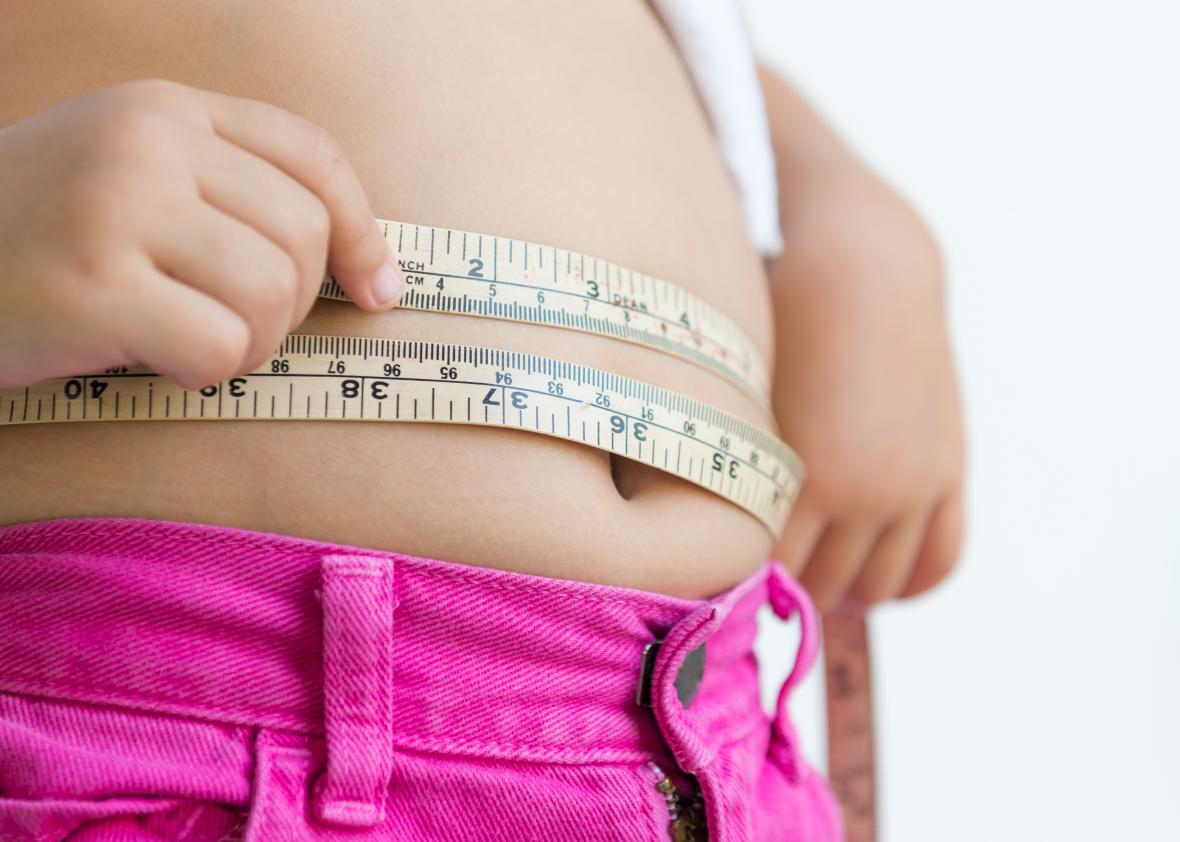Last week, the National Republican Congressional Committee released an ad suggesting that Maine congressional candidate Emily Cain once promoted body-shaming young women. The accusations were a reference to Cain’s sponsorship of a bipartisan bill that would have attempted to combat childhood obesity with measures including weighing kids in school. The ad features a series of women, presumably Cain’s would-be constituents, facing the camera and asking Cain to explain herself. “Weighing our kids, including our teenage girls—why did you think that was a good idea?” they ask. Kids’ weight is “none of your business,” one woman tells the camera. “Emily Cain, you’re out of touch, and not on our side.”
On Wednesday, Cain issued her own ad as a rebuttal, and it’s a striking bit of rhetoric. The candidate sits on a couch in what appears to be her living room, and speaks directly to the camera. “Like a lot of women, I’ve struggled with my weight,” she says. “It’s hard. It’s very personal. So for the special interests backing Bruce Poliquin to exploit the insecurities of teenage girls, it’s just a new low.”
Cain, a Democrat, was elected to the state legislature in Maine at age 24, and later served in the state Senate. She ran for Congress in 2014, but lost to the Republican Poliquin, whom she is challenging again this year. The contest between Cain and Poliquin is a close one, although Trump leads Clinton in the district for now. Eric Trump and his wife are campaigning there today.
Taken together, the two ads suggests something remarkable: That body image has become such a prominent cultural issue that it’s now useful as a political bludgeon. We have Donald Trump to thank in part for that, since his own loathing of non-modelesque women has become an astonishingly persistent campaign theme. Last month, Hillary Clinton released an ad in which young girls and teenagers somberly examine themselves in mirrors, set to a greatest-hits of Trump’s misogyny. “A person who’s flat-chested is very hard to be a 10,” the Republican presidential candidate declares as one girl smooths out her shirt. “Does she have a good body? No. Does she have a fat ass? Absolutely.” After the first Trump-Clinton debate, Trump’s crazed series of attacks on former Miss Universe Alicia Machado—not to mention his reference to hackers weighing 400 pounds—again brought the concept of body-shaming onto front pages.
If advertising is an inherently conservative industry, political advertising is even more so. Unlike the business world, where some products can thrive by pitching themselves to niche audiences, few politicians can win by appealing to anything less than the majority. The new ads in Maine are just two TV spots in one congressional race in one small state. But they confirm that the issue of female body image is not just one for big-city liberals or woke young feminists anymore. After all, the exchange started with Republicans, who clearly saw it as a winning angle to frame Cain’s bill as cruel to young girls. If body image is becoming a bipartisan issue—minus Trump and a few other old-school misogynists—that’s pretty huge.
